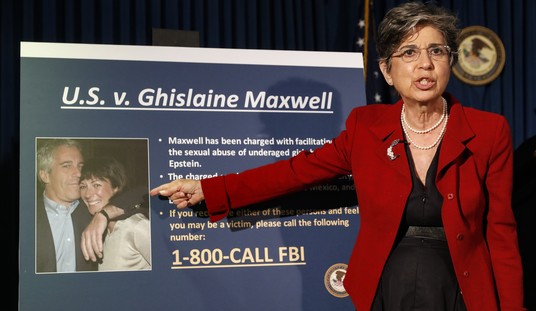Michael Flynn made a declaration to the court today in which he said he never lied to the FBI and regrets his decision to plead guilty, which he says was done under intense pressure from the government and his own lawyers:
“In truth, I never lied,” Flynn said in the Wednesday filing as part of an effort to have the charges against him dismissed.
“My guilty plea has rankled me throughout this process, and while I allowed myself to succumb to the threats from the government to save my family, I believe that I was grossly misled about what really happened,” Flynn wrote…
Flynn claimed in the filing that he “never would have pled guilty” if his initial defense team had told him federal agents said he “did not give any indication of deception” when questioned about conversations he had with then-Russian Ambassador Sergey Kislyak.
The full document is here. Flynn walks through the events which led up to his guilty plea in detail, I’m going to quote this at length because it really does explain Flynn’s argument for why he decided to plead guilty despite his own better judgment:
In November 2017, the Special Counsel’s Office (SCO) created sudden and intense time-pressure on me to plead guilty. On November 4, 2017, I believe, my Covington attorneys told my wife and me that the Special Counsel’s Office (SCO) wanted to conduct a proffer session with me…
During the second day of the proffer, I used words and phrases that were not really my own voice, and I regret that, just as I regret pleading guilty. People think that a three-star general must know everything, but I was a fish-out-of-water in a terrifying and completely foreign situation, with none of the legal skills necessary to deal with the many things being thrown at me. I hired the team of the best lawyers I had been told I could find, and I relied on them completely. One of the ways a person becomes a 3-star general is by being a good soldier, taking orders, being part of a team, and trusting the people who provide information and support. Lori and I trusted Mr. Kelner and Mr. Anthony to guide us through the most stressful experience of our lives, in a completely incomprehensible situation. I have never felt more powerless. I should have stood my ground firmly for what I knew to be the truth—that I did not lie to the agents, and I should have told this Court on December 18, 2018, that I needed to consult new counsel. My relationship with Covington disintegrated soon thereafter…
On November 30, 2017, as plea negotiations with the SCO were coming to a head, I reiterated to my former lawyers, specifically Robert Kelner and Stephen Anthony, that I did not believe that I had lied in my White House interview with the FBI agents. I reminded them that I had spoken to representatives of well over thirty countries, many in a single 24-hour period, during that very busy holiday season and presidential transition period. In fact, some of these calls occurred while I was supposedly on “vacation” out of the country. Although I may have had an incomplete memory of the many details of certain conversations when speaking to the agents, I did not consciously or intentionally lie…
Still struggling with the decision whether to plead guilty, I asked my former attorneys to make further inquiry with the SCO prosecutors about whether the FBI agents believed that I had lied to them. In the preceding months leading up to this moment, I had read articles and heard rumors that the agents did not believe that I lied, something I also firmly believed.
Mr. Kelner and Mr. Anthony left the room to call the SCO prosecutors. When they returned, they informed my wife and me that they had been told that the “agents stand by their statements.” Because I was then unaware that the agents had made the statements described in this Declaration, and because I was unaware of what had passed between my former lawyers and the SCO outside of the room, I then understood them to be telling me that the FBI agents believed that I had lied…
I agreed to plead guilty that next day, December 1, 2017, because of the intense pressure from the Special Counsel’s Office, which included a threat to indict my son Michael, and the lack of crucial information from my counsel. The SCO had already made Michael the subject of their investigation and taken all his files and communications devices (computer, phone, files, and thumb drive). At the time, Michael and his wife had a four-month old baby. Nonetheless, I would not have pled guilty if my former lawyers had informed me that both agents who interviewed me at the White House on January 24, 2017, had advised that a) I displayed a “sure demeanor;” b) I “did not give any indications of deception”; and c) both agents believed there was “no indication that I was lying, or that I believed I was lying.”
After the filing from Flynn, prosecutors signaled later Wednesday that they were willing to accept probation with no jail time:
Prosecutors backed away from their recommendation that former national security adviser Michael Flynn serve up to six months in prison, saying in a court filing Wednesday that probation remained a “reasonable sentence” that they would not oppose.
The filing comes as Flynn continues his effort to withdraw his guilty plea in special counsel Robert S. Mueller III’s Russia probe. Prosecutors did not explain in their filing why they reemphasized probation as a reasonable sentence for Flynn.
I’m not an attorney so I won’t speculate about Flynn chances to overturn his own plea (experts seem to think it’s unlikely). I do think this entire process has been unfair to Flynn. The FBI set a trap, failing to notify the White House Counsel, on the theory that Flynn had violated the Logan Act, a 1799 law which has never been successfully used to prosecute anyone. It’s unfortunate Flynn didn’t stick to his guns but clearly the pressure to bankrupt and imprison him (and his family) was too much.








